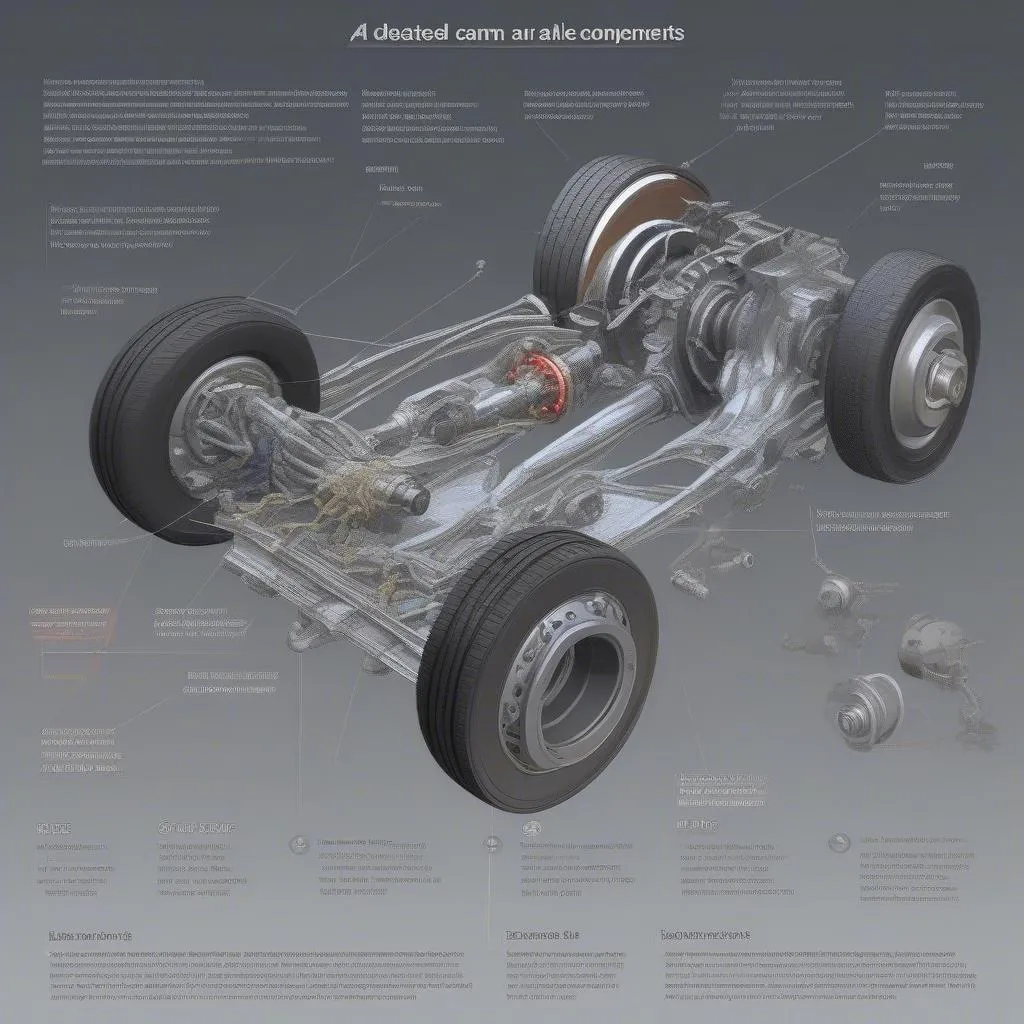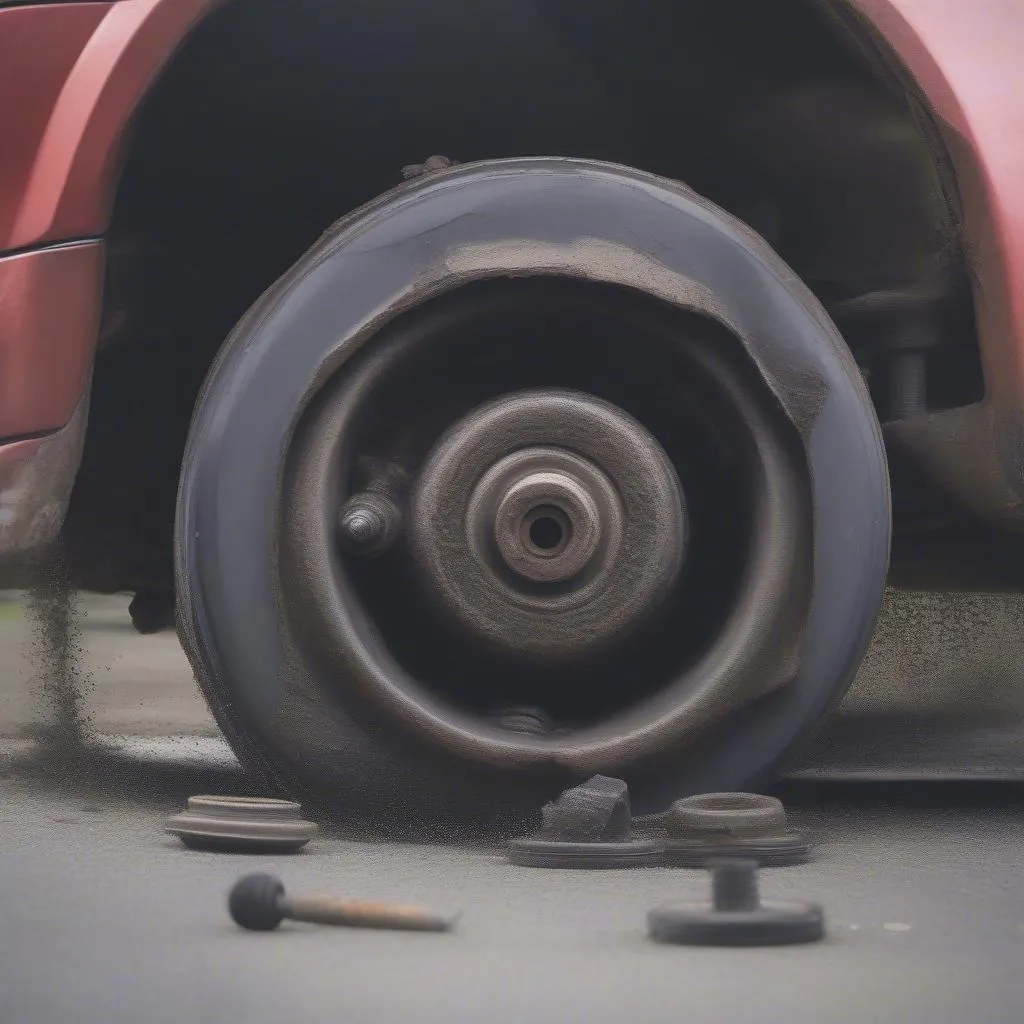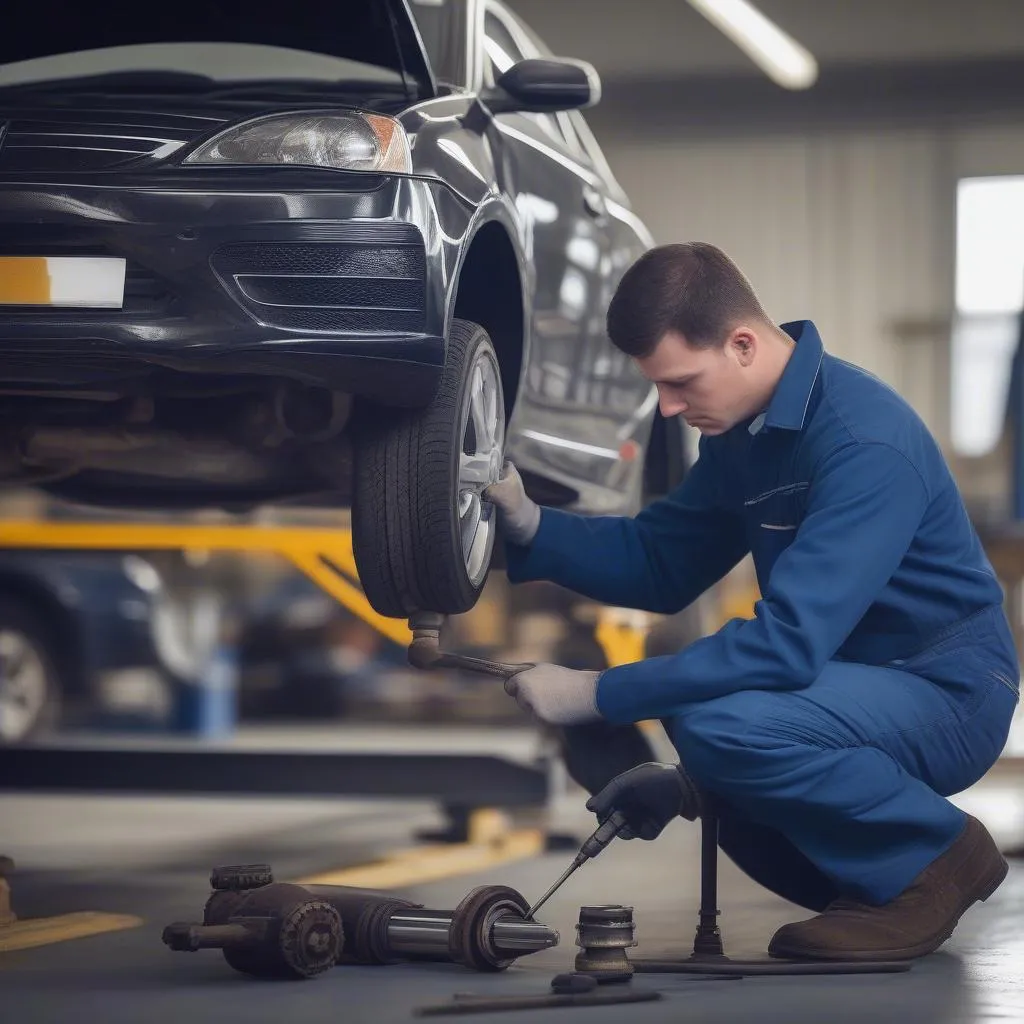Imagine cruising down the Pacific Coast Highway in your sleek Audi A4, the California sun warming your face. Suddenly, you feel a jarring vibration, and a concerning noise emanates from beneath your car. You pull over, heart sinking. Could it be your car axles?
Car axles might not be the most glamorous part of your vehicle, but they play a crucial role in your driving experience. They’re the unsung heroes that transfer power from the transmission to the wheels, allowing your car to move forward (or backward).
What Exactly Are Car Axles?
From a mechanic’s perspective, a car axle is a robust metal shaft connecting your car’s wheels to the transmission. They come in pairs, one for the front and one for the rear, or in some cases, on all four wheels for all-wheel drive vehicles.
Technically speaking, axles work in tandem with several other components, including:
- Differential: This clever device allows the wheels on either side of the axle to rotate at different speeds while turning.
- Wheel bearings: These reduce friction between the axle and the wheel, ensuring a smooth rotation.
- Constant velocity (CV) joints: These allow for the up and down movement of the suspension while maintaining power transfer to the wheels.
Economically speaking, maintaining your car axles can save you significant costs in the long run. A neglected axle problem can snowball into a major repair, potentially leaving you stranded and out of pocket.
Common Car Axle Problems and Their Solutions
Now that we understand the basics, let’s dive into some frequently asked questions about car axles:
1. Why Is My Car Shaking When I Accelerate?
This is a tell-tale sign of a potential axle problem. It could be a worn-out CV joint, a bent axle (often from hitting a pothole at high speed), or a damaged wheel bearing.
Solution: Take your car to a trusted mechanic immediately. They will be able to diagnose the issue and recommend the necessary repairs, potentially saving you from further damage and costly repairs.
2. What’s That Clicking Sound When I Turn?
A clicking noise, particularly when turning, often points to a failing CV joint. The protective boot surrounding the joint might be torn, allowing dirt and debris to contaminate the grease and causing wear and tear.
Solution: A mechanic can replace the damaged CV boot or, if necessary, the entire CV joint.
3. My Car Vibrates at High Speeds – Is it the Axles?
While vibrations at high speeds can indicate an axle problem, especially if it’s accompanied by a humming noise, it could also be related to unbalanced tires or worn suspension components.
Solution: Don’t jump to conclusions. Have a mechanic thoroughly inspect your car to pinpoint the root cause of the vibration.
4. How Often Should I Get My Axles Checked?
Regular maintenance is key! It’s recommended to have your axles inspected by a mechanic at least once a year or as part of your routine car maintenance schedule.
Solution: Be proactive. During your next oil change or tire rotation, ask your mechanic to check the condition of your axles and CV joints.
 Car Axle Diagram
Car Axle Diagram
 Damaged Car Axle
Damaged Car Axle
 Mechanic inspecting car axles
Mechanic inspecting car axles


